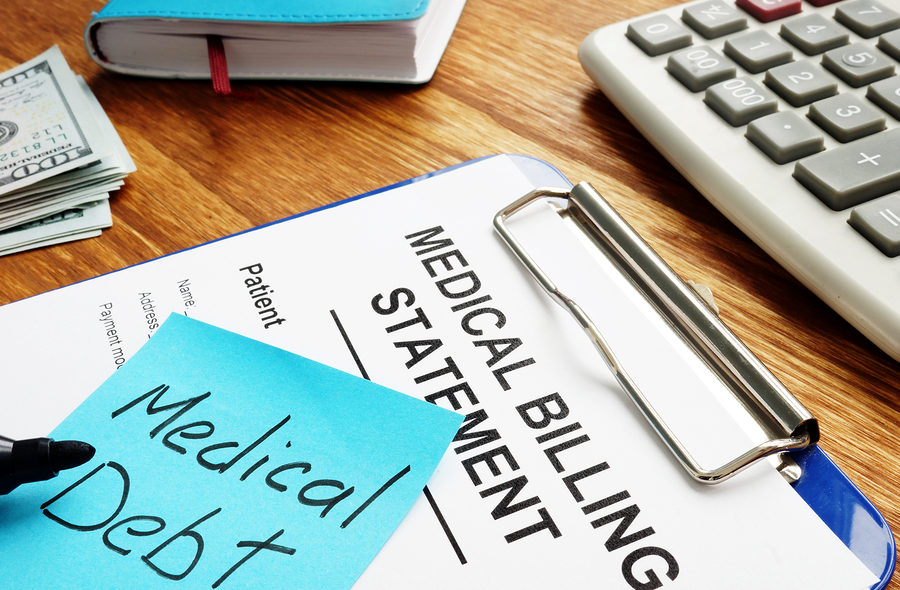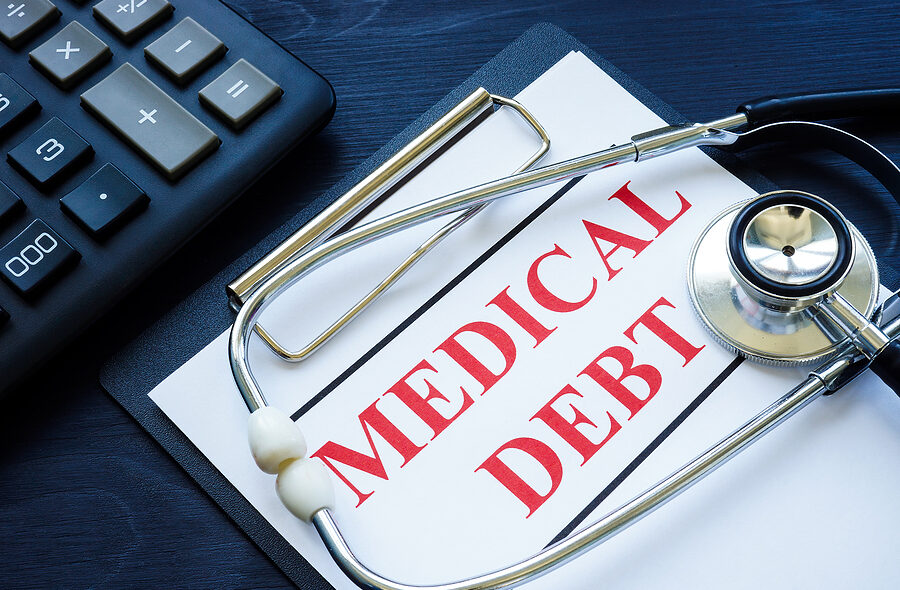The Consumer Financial Protection Bureau (CFPB) finalized a rule that will remove medical debt from credit reports and prohibit lenders from using medical information in their approval decisions.
The CFPB estimates the change will remove $49 billion in medical bills from the credit reports of about 15 million Americans. Consumers with medical debt on their record could see their credit score rise by an average of 20 points because of the rule change, and approximately 22,000 more mortgages will be approved each year.
Even with health insurance, there are deductibles and copays the patient is responsible for. In addition, your policy may have a coverage limit or not pay for certain treatments.
After the insurance company pays its share, the patient is responsible for the remainder. Medical debt can come from a variety of sources, including:
- Hospital visits
- Surgeries
- Doctor and dentist appointments
- Prescriptions
- Ambulance companies
How Medical Debt is Handled in Bankruptcy
In bankruptcy, medical debt is treated the same as credit card debt. Medical bills are listed as general unsecured debt and can be easily wiped out in a Chapter 7 bankruptcy filing. Making the decision to file for bankruptcy is never an easy one.
Fortunately, consumers have the option available to them to file for bankruptcy to escape this burden of medical debt. In a bankruptcy case, debts are classified into two categories: secured and unsecured, as well as priority and nonpriority debts. Secured debts are those that are backed by a form of collateral, while priority debts can be unsecured but receive special status, such as tax bills, student loans, and child support. Unsecured debts are those debts that are not secured by collateral and include personal loans, credit card debt, and medical debt.
In a bankruptcy case, unsecured debts are the ones that are discharged at the end of the case, while priority and secured debts are the focus of payment plans or payment in a Chapter 7 case after assets are liquidated. If a debt is discharged, this means the court has issued an order stating that the debt does not have to be paid.
Medical debt may also become part of the repayment plan issued as part of a Chapter 13 bankruptcy case. The bills may not end up paid in full, but the medical providers will receive at least some amount of payment, which helps the consumer maintain a relationship with their healthcare providers. Repayment plans normally last three to five years, ending with the consumer’s remaining debts, including medical debt, getting discharged.
Those who have experienced illness or injury and found themselves overwhelmed with medical debt should contact an experienced Miami bankruptcy attorney. In bankruptcy, medical bills are considered general unsecured debts just like credit cards. This means that medical bills do not receive priority treatment and can easily be discharged in bankruptcy. Bankruptcy laws were created to help people resolve overwhelming debt and gain a fresh financial start. Bankruptcy attorney Timothy Kingcade knows how to help clients take full advantage of bankruptcy laws to protect their assets and get successful results. Since 1996 Kingcade Garcia McMaken, P.A., has been helping people from all walks of life build a better tomorrow. Our attorneys’ help thousands of people every year take advantage of their rights under bankruptcy protection to restart, rebuild and recover. The day you hire our firm; we will contact your creditors to stop the harassment. You can also find useful consumer information on the Kingcade Garcia McMaken, P.A. website at www.miamibankruptcy.com.
SOURCE: New Federal Rule Removes Medical Debt from Credit Reports (CNBC)


